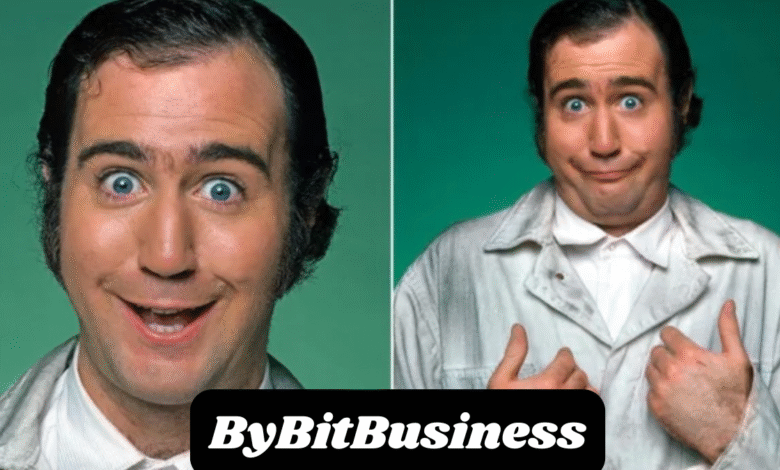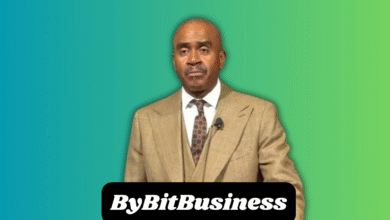Andy Kaufman Last Words: A Deep Dive into the Final Chapter of a Comedic Enigma

The Mystery Behind Andy Kaufman’s Final Moments
Andy Kaufman Last Words of the most enigmatic and unconventional figures in the history of American comedy. With a career that defied categorization and a public persona that blurred the line between performance and reality, Kaufman cultivated an air of perpetual mystery. His death in 1984 at the young age of 35 shocked fans and sparked decades-long speculation. Central to this intrigue is the question of his last words—an area shrouded in uncertainty, theories, and a touch of theatrical flair that would be entirely in keeping with the man himself.
Unlike most public figures, Kaufman’s life and work resisted easy interpretation. His apparent disdain for conventional comedy, his fascination with pranks, and his belief in performance art as a medium for emotional truth all added layers of ambiguity to everything he did. As a result, even his death—and especially his supposed final words—have become a subject of ongoing fascination.
The Illusion of Identity and Death
To understand the context of Andy Kaufman Last Words, one must first explore the broader canvas of his life and the characters he created. Kaufman was not a traditional stand-up comedian. He didn’t tell jokes in the standard sense. Instead, he embodied personas—most famously the obnoxious lounge singer Tony Clifton—and reveled in manipulating audience expectations. Kaufman’s performances were designed not only to entertain but to provoke and confuse.
When news broke in May 1984 that Kaufman had died of lung cancer, many of his fans refused to believe it. They assumed it was another elaborate prank, a continuation of his performance art that would eventually reveal itself. In fact, theories that Kaufman faked his death continue to persist to this day. These beliefs have only muddied the historical record surrounding his final moments and last utterances.
Accounts from Those Closest to Him
Only a small circle of family and close friends were with Kaufman during his final days at Cedars-Sinai Medical Center in Los Angeles. Among them were his father Stanley Kaufman, his longtime partner Lynne Margulies, and his manager George Shapiro. Their accounts of his final days, though scarce and carefully guarded, offer glimpses into the man behind the myth.
Lynne Margulies later produced a documentary titled I’m from Hollywood and co-wrote the book Dear Andy Kaufman, I Hate Your Guts! which captured her intimate recollections of their time together. According to her, Andy maintained his mischievous humor and unique outlook on life even as he faced death. He joked with doctors, asked surreal questions, and sometimes lapsed into his characters, even in the hospital.
But when it comes to his literal last words, the record is far less clear. There is no widely accepted, verifiable statement of what Andy Kaufman said in his final breath. Some say his last words were simple and poignant—something like “Thank you very much,” a phrase closely associated with his beloved Foreign Man character. Others recall no dramatic statement, just quiet murmurs as his health declined. Because those closest to him have largely respected his privacy and maintained discretion, the truth remains speculative.
The Symbolism of Silence
In a way, the absence of clear last words may be perfectly emblematic of Kaufman himself. He never wanted to be easily understood, and he thrived in ambiguity. Whether on stage reading The Great Gatsby in full, wrestling women on television, or lip-syncing to the Mighty Mouse theme song, Kaufman’s entire act was a commentary on expectation and perception. That his final words remain uncertain feels like an intentional act—even if it wasn’t.
Silence, or at least a lack of definitive narrative, allows his story to continue being interpreted and reinterpreted. In performance art, the meaning is often created by the audience, not dictated by the artist. Kaufman’s final chapter, like his career, forces observers to confront their own assumptions and conclusions. Did he pass quietly with his loved ones, or did he stage a final joke? Did he die as Andy Kaufman, or in character? The questions linger.
Legacy and Theories
The mystery of Kaufman’s death—and his last words—has been further complicated by numerous hoaxes and tributes that keep his legacy alive. Over the years, reports have emerged claiming he is still alive, living under an alias, or planning a grand return. In 2013, a woman even claimed to be his daughter, alleging that Kaufman had faked his death and was still alive. Although these stories were debunked, they reflect the depth of public fascination.
Hollywood has not been immune to Kaufman’s mystique either. The 1999 biopic Man on the Moon, starring Jim Carrey, reignited interest in Kaufman’s life and death. Carrey, who fully immersed himself in the role, later revealed how deeply the experience affected him. The film ends with a lingering ambiguity, suggesting that Kaufman may have orchestrated even his final exit.
In 2017, the Netflix documentary Jim & Andy: The Great Beyond offered behind-the-scenes footage of Carrey’s transformation into Kaufman. In it, Carrey reflects on Kaufman’s impact and how inhabiting his persona led to a kind of identity crisis. The documentary also subtly probes the idea that perhaps Kaufman’s death was the ultimate performance—a final curtain drawn in silence.
Medical Realities and Private Pain
While public fascination continues to swirl around fantastical theories, the medical reality is both sobering and tragic. Kaufman was diagnosed with a rare form of lung cancer, large cell carcinoma, despite being a non-smoker. He sought alternative treatments, including natural medicine and a trip to the Philippines for psychic surgery, but his condition deteriorated.
During his illness, he avoided public attention, keeping his health status largely private. It was a stark contrast to the larger-than-life personas he had portrayed. This retreat into privacy lends weight to the theory that his last words were not part of a performance, but something deeply human and personal—words shared only with those he loved.
How Fans Interpret His Final Silence
To this day, fans speculate, invent, and project meaning onto the void where his last words should be. In the absence of confirmed statements, imagination has filled the gap. Some believe he went out with a cryptic joke. Others are sure he expressed love for those around him. There’s even a segment of his followers who claim he was completely silent, offering only a smile—a gesture they interpret as his final act of communication.
These interpretations reflect the kind of relationship Kaufman fostered with his audience. He was not a performer who sought applause. He wanted reaction—whether it was laughter, confusion, or even anger. His final moments, left undefined, give his fans something to interpret and discuss. In that sense, Andy Kaufman may still be performing from beyond the grave.
The Human Beneath the Persona
In our search for Kaufman’s last words, we are really searching for connection—a way to understand who he truly was. Beneath the theatrical layers was a man who valued sincerity and emotional honesty, even if he expressed it through the art of deception. His ability to mix reality and fiction was not a gimmick but a deeply held philosophy.
Those who knew him best describe a kind, introspective man who loved to make people feel, even if that feeling was confusion or discomfort. He once said, “I never told a joke in my life.” That may be true, at least in the conventional sense. Instead, he told truths in ways that were often unrecognizable as such—buried in parody, in silence, or in carefully staged chaos.
Perhaps the greatest truth he left behind is the one that remains unwritten. By not having definitive last words, Andy Kaufman left his final performance open to interpretation. Just like his life, his death was a riddle that invites us to look closer, think deeper, and question what we think we know.
FAQs
Q: Did Andy Kaufman really fake his death?
There is no concrete evidence to support the claim that Andy Kaufman faked his death. While rumors persist and some fans believe he staged his death as part of an elaborate prank, his death certificate and accounts from family and close friends confirm that he died of lung cancer in 1984.
Q: What were Andy Kaufman’s confirmed last words?
There are no publicly confirmed last words from Andy Kaufman. Different people who were close to him during his final days have offered varying accounts, and none have been verified in a definitive way. This ambiguity has fueled speculation and legend.
Q: Why do people think Andy Kaufman is still alive?
People believe Andy Kaufman may still be alive because of his reputation for elaborate pranks and his ability to blur the lines between reality and performance. His death was sudden, and he had a history of joking about faking his death, leading some fans to think it was another part of his act.
Q: Who was with Andy Kaufman when he died?
Andy Kaufman was reportedly surrounded by a few close friends and family members during his final days at Cedars-Sinai Medical Center in Los Angeles. This included his girlfriend Lynne Margulies, his father Stanley, and his manager George Shapiro.
Q: How has Andy Kaufman’s legacy endured?
Andy Kaufman’s legacy endures through his groundbreaking approach to comedy and performance art. His influence is seen in comedians and performers who challenge norms and play with audience expectations. Documentaries, books, and films like Man on the Moon have helped keep his memory alive.
Q: What is the significance of the phrase “Thank you very much” in relation to Andy Kaufman?
“Thank you very much” was a catchphrase often used by Kaufman’s Foreign Man character, which later evolved into his Elvis impersonation act. Some fans speculate that these may have been his final words, as they are closely associated with his comedic identity.
Q: Did Andy Kaufman have children?
There is no confirmed record of Andy Kaufman having any children. Andy Kaufman Last Words While a woman once claimed to be his daughter, her claims were later disproved. His private life was closely guarded, adding to the mystery surrounding his legacy.
Q: Was Andy Kaufman really as eccentric in real life as he appeared on stage?
While Andy Kaufman was undoubtedly a unique individual, those who knew him personally describe him as sincere, intelligent, and kind. His eccentric behavior was often part of carefully constructed performances, though it did reflect his unconventional approach to life and art.


